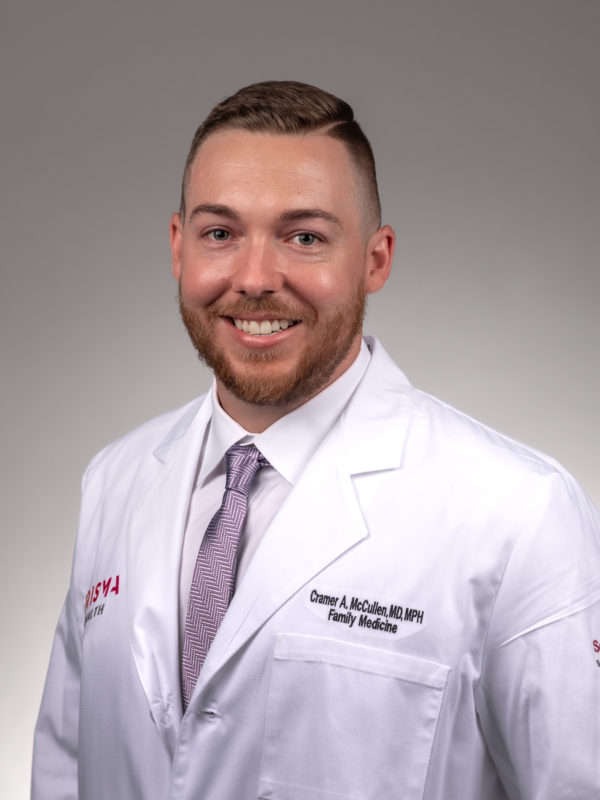Navigating LGBTQ+ healthcare
Whether it’s for general primary care, such as yearly checkups, or for more specific testing or specialized needs like hormone therapy, everyone deserves quality healthcare delivered with affirmation and understanding. Navigating LGBTQ+ healthcare, though, can feel like a challenge.
“People in the LGBTQ+ community can find it difficult to speak honestly with their medical providers,” Cramer McCullen, MD, Family Medicine physician, said. He explained why it’s important to find a trusted healthcare provider and offered tips on how to ensure you’re receiving the care you need.
What are the biggest health issues affecting the LGBTQ+ community?
“LGBTQ+ people face disparities in healthcare outcomes including higher rates of anxiety, depression, suicide, substance use and other mental health concerns; interpersonal violence and infections like HIV and STI’s. ” Dr. McCullen said.
The data suggest that implicit and explicit discrimination of LGBTQ+ people by society as well as internalized homophobia lead to worse mental health outcomes for patients. Living with lack of acceptance raises stress levels and promotes depression, anxiety, suicidality and substance use including smoking, as LGBTQ+ people anticipate and experience hate and discrimination.
The CDC reports that gay and bisexual men bear the brunt of the HIV epidemic in the US and particularly among LGBTQ+ persons of color.
Domestic and interpersonal violence is a problem throughout the entire population, but transgender individuals are more likely to experience violence, victimization and homicide. In fact, 2021 was the deadliest year for transgender individuals in US history.
Why are there health disparities among this community?
“We have to look at the systematic issues that marginalize and disenfranchise LGBTQ+ populations,” Dr. McCullen said. “LGBTQ+ people are more likely to lack a lot of protections – especially in employment, housing and places of public accommodation.”
In a country where most health insurance is provided through an individual’s employer, they are also less likely to have access to health insurance coverage that encompasses their healthcare needs. LGBTQ+ communities of color face even greater difficulties and disparities due to the intersection of racism and homophobia.
When a person doesn’t feel safe or understood, it becomes immensely difficult to ask for help or be fully honest with their medical provider. LGBTQ+ individuals often feel uncertain about whether they will be heard, believed or given quality care. This can lead to avoidance of preventive healthcare entirely or presenting late to care leading to worse health outcomes.
What can I do to ensure I’m receiving the care I need?
“Find a local LGBTQ friendly provider,” Dr. McCullen said. “Be open and honest with your provider about your healthcare needs and concerns.”
It’s understandable to be nervous or worried that you’ll forget something important during the appointment. Some ways you can make sure your voice is heard include:
- Have a friend or trusted family member come with you, if needed, to help advocate for your needs
- Write down a list of questions beforehand to ensure you receive the answers
- Share your medical history in detail so the physician can be aware of potential future concerns
- Ask about follow-up communication
How can I find an LGBTQ+ friendly provider in South Carolina?
When finding a provider, take a look at the information provided about the care they offer. You may find they are clear about being LGBTQ friendly. You can also often contact the practice online or by phone to ask directly about the care you will receive.
“At our LGBTQA+ Healthcare page, we make it quick and easy for individuals to locate LGBTQ-friendly practices, providers and specialists in South Carolina,” Dr. McCullen said.
Find the care you need, close to home
Our primary care physicians provide well visits and everyday care when you need it with compassion and expertise.
Find Primary Care Near You

